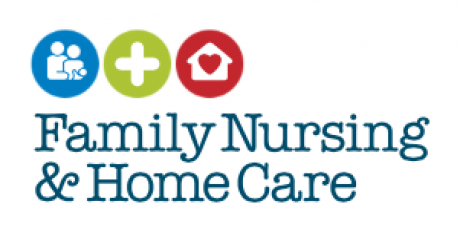Family Nursing and Home Care spoke out after it was revealed that Jersey’s health visitors, who check on children during their early years, are overstretched.
A report into early child development which was published last week found that a health visitor in Jersey has an average case load of 330 pre-school children, compared with the UK recommended figure of 250.

- FNHC is a Jersey charity providing nursing care in the community from birth to end of life.
- It needs to raise £2 million per year in donations to continue providing its services.
- Julie Gafoor is the charitys chief executive. She started her career working as a nurse in the NHS, firstly as a Sister in intensive care and then as a Night Sister. She moved to work in the community in 1994, working as a Health Visitor and then as the health lead for the Sure Start centre in Oxford.
- Mrs Gafoor moved to Jersey in 2001, where she became the operational lead for Child and Family Services at Family Nursing and Home Care. She continued in this role until 2012, when she was appointed as chief exective.
The study commissioned by the UBS Optimus Foundation and carried out by a UK professor and doctor called for an increase in the number of health visitors in the Island. Ivo Le Maistre Smith, fundraising manager for FNHC, said that in an ideal world they would employ enough health visitors so that their workload met the UK-approved levels but that the charity was restricted by its resources.
The charity’s annual running cost is £9.5 million. This year it has received £7.8 million in States funding – an extra £1 million compared to last year as the government begins implementing its policy from the Health white paper which seeks to introduce more health services in the community.
However, the charity still needs to raise £1.7 million a year, and that will only pay for the services it currently offers.
Mr Le Maistre Smith said: ‘We are a charity and rely on funding. The message we hear constantly is that people
don’t realise we are a charity. There is some incredibly good practice out there – we could do more if we had more funding.’
The report also found that that Jersey has a low coverage of health visitor checks, which are undertaken when a child reaches the age of two, to assess language skills and physical ability. Coverage could be as low as 60 per cent, whereas in the UK it is around 90 per cent.
Mr Le Maistre Smith said that parents going back to work may affect the two-year checks being carried out – Jersey has a high proportion of parents in full time work and more than 80 per cent of mothers of pr-eschool children are employed.
Mr Le Maistre Smith said the report had also highlighted a number of good practices, including the children’s centres at The Bridge and Samarès. The report recommended that similar centres be set up across the Island and suggested that the parish system could be of great value in expanding locally accessible children’s services.
A report was commissioned by the UBS Optimus Foundation, a branch of the financial services firm, into early child development in Jersey.
It was written by Professor Philip Wilson and Dr Louise Marryat who made a number of recommendations including introducing publicly accessible reports on inspections of preschool establishments, bringing Jersey in line with the UK and addressing the gap in data held on Island children.
The report said:
- There are 14.8 whole-time equivalent health visitors on Jersey (including the four new posts), so the average caseload of preschool children is at least 330 which is above the nationally recommended figure in the UK of 250.
- We heard a number of reports that many families do not know the name of their health visitor.
- The challenges faced by the health visiting team are thus substantial, although some families receive an excellent service through MESCH, these families have to have their vulnerabilities identified antenatally.
- The report added: The lack of a system for statutory notification of immigrant children to the health visiting team means that many children may not come to the notice of a health visitor until they either attend the A&E department on their parents seek state-funded preschool education services. There appears therefore to be the possibility that a substantial number of children who could benefit from health visiting services do not do so, and the service may have limited capacity to meet this need.
Recommendations from the UBS Foundation report:
- Efforts should be made to ensure that health visitor numbers are increased, that the existing workforce is supported by adequate administrative arrangements. Every family with preschool children should know who their health visitor is.
- Health visitors and nursery staff should have access to increased levels of consultation/supervision from experts in early childhood development. There is a good case for appointment of one or two community-based infant mental health specialists who could work alongside the existing CAMHS team but have an explicitly outward-facing and preventive role.






